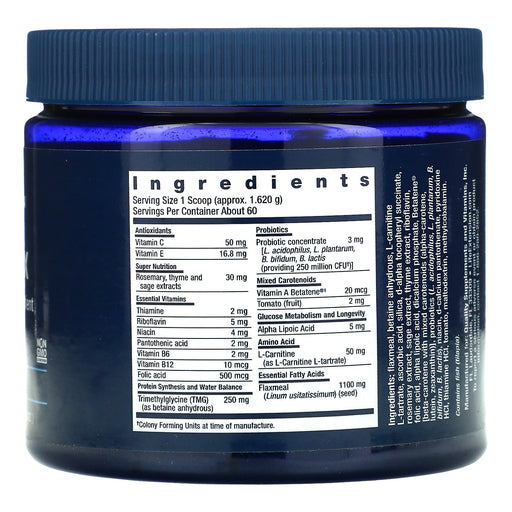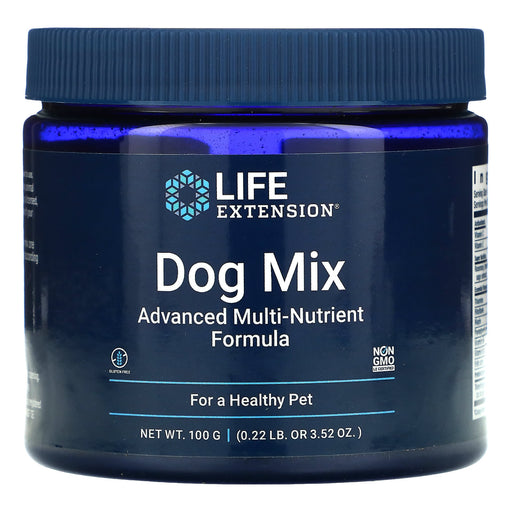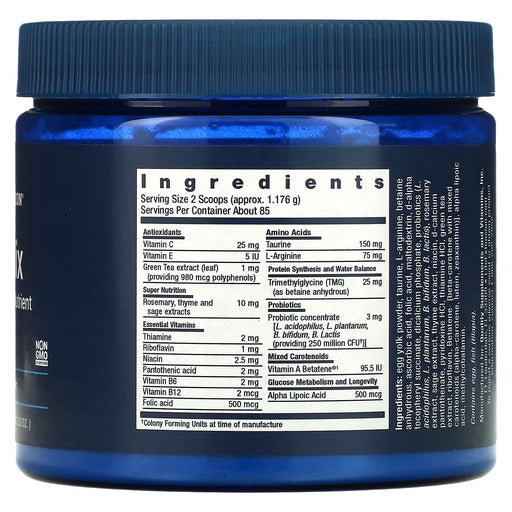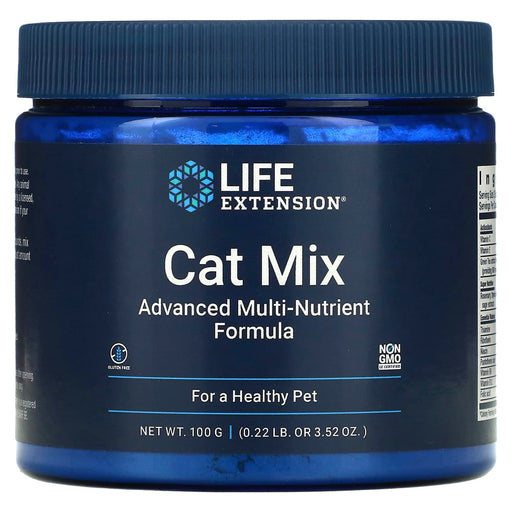
Supporting Your Pet's Optimal Health with Essential Vitamins and Minerals
Just like humans, pets require a balanced supply of essential vitamins and minerals to maintain optimal health and well-being. Pet vitamin and mineral supplements are specifically formulated to address the unique nutritional needs of cats, dogs, and other companion animals, helping to fill potential gaps in their diet and support various aspects of their health.
Key Vitamins and Minerals for Pet Health
Pet vitamin and mineral supplements often contain a wide range of essential nutrients that play crucial roles in maintaining your pet's overall health and vitality. Some of the most important vitamins and minerals include:
- Vitamin A: Essential for healthy vision, immune function, and skin and coat health in pets.
- B Vitamins: B-vitamins, such as thiamine, riboflavin, and niacin, support energy metabolism, nervous system function, and overall health in pets.
- Vitamin C: A powerful antioxidant that helps protect pets' cells from oxidative stress and supports immune function.
- Vitamin D: Necessary for proper calcium absorption and bone health in pets.
- Vitamin E: Another potent antioxidant that supports healthy skin, coat, and immune function in pets.
- Calcium: Essential for strong bones and teeth, as well as proper muscle and nerve function in pets.
- Iron: Necessary for the formation of hemoglobin and the transport of oxygen throughout your pet's body.
- Zinc: Supports immune function, skin and coat health, and proper wound healing in pets.
Benefits of Pet Vitamin and Mineral Supplementation
Incorporating vitamin and mineral supplements into your pet's wellness routine can offer several potential benefits, including:
- Supporting Overall Health: By providing essential nutrients, these supplements help support your pet's general health and well-being.
- Filling Nutritional Gaps: Even high-quality pet foods may not always meet your pet's specific nutritional needs. Supplements can help fill these potential gaps and ensure your pet receives optimal nutrition.
- Promoting Healthy Skin and Coat: Vitamins and minerals like biotin, vitamin E, and zinc can help promote a shiny, healthy coat and support skin health in pets.
- Supporting Immune Function: Antioxidants like vitamin C and vitamin E, as well as zinc, help support your pet's natural defenses and promote a healthy immune system.
- Maintaining Bone and Joint Health: Calcium, vitamin D, and other essential nutrients help maintain strong bones and support joint health in pets, especially as they age.
Choosing the Best Pet Vitamin and Mineral Supplements
When selecting vitamin and mineral supplements for your pet, it's crucial to choose high-quality products from trusted brands. Consider the following factors:
- Species-Specific Formulas: Look for supplements that are specifically formulated for your pet's species (e.g., dog or cat) and life stage (e.g., puppy, adult, or senior).
- Quality Ingredients: Choose supplements that contain high-quality, pure ingredients, free from artificial additives and potential allergens.
- Veterinarian Formulated: Opt for supplements that are formulated by veterinarians or animal health experts, ensuring the products are backed by scientific research and expertise.
- Brand Reputation: Select supplements from reputable brands with a history of producing effective, science-backed pet health products and a commitment to transparency and customer satisfaction.
Maximizing the Benefits of Pet Vitamin and Mineral Supplements
To ensure your pet receives the maximum benefits from their vitamin and mineral supplements, consider the following tips:
- Consult with Your Veterinarian: Always discuss your pet's specific nutritional needs with your veterinarian before starting any new supplement regimen.
- Follow Dosage Instructions: Adhere to the recommended dosage on the product label, considering your pet's weight and specific health needs.
- Provide a Balanced Diet: Supplements should be used in conjunction with a balanced, species-appropriate diet to ensure your pet receives optimal nutrition.
- Store Supplements Properly: Keep pet supplements in a cool, dry place, away from direct sunlight and heat, to maintain their potency and freshness.
Ensure Your Pet Thrives with Essential Vitamins and Minerals
Investing in your pet's nutrition is one of the most loving things you can do as a pet owner. By providing essential vitamins and minerals through high-quality supplements, you can support your pet's overall health, vitality, and happiness, helping them live their best life by your side.
Browse our carefully curated selection of pet vitamin and mineral supplements and experience the power of targeted nutrition for your furry friend. With a commitment to quality, efficacy, and your pet's individual needs, Health Orchard is here to support you in giving your beloved companion the care they deserve.
Frequently Asked Questions about Pet Vitamins & Minerals
1. What vitamins and minerals are in pet food?
Most commercial pet foods are formulated to provide a balanced array of essential vitamins and minerals to support overall health and well-being. The specific vitamins and minerals included in pet food may vary depending on the brand, formula, and target life stage. However, some common vitamins and minerals found in pet food include:
- Vitamins: A, B-complex (thiamine, riboflavin, niacin, pantothenic acid, pyridoxine, biotin, folic acid, B12), vitamin C, vitamin D, vitamin E, and vitamin K
- Minerals: Calcium, phosphorus, potassium, sodium, chloride, magnesium, iron, copper, manganese, zinc, iodine, and selenium
These nutrients are carefully balanced to meet the specific requirements of dogs and cats based on their size, age, and activity level.
2. Are pet vitamins worth it?
The worth of pet vitamins depends on the individual animal's needs and health status. In many cases, a high-quality, balanced commercial pet food will provide all the necessary vitamins and minerals, making additional supplementation unnecessary. However, there are some situations where pet vitamins may be beneficial:
- Homemade or raw diets: Pets fed homemade or raw diets may require vitamin supplementation to ensure they receive all the necessary nutrients in the proper proportions.
- Specific health conditions: Some health issues may warrant vitamin supplementation, such as skin problems, joint issues, or digestive disorders. Your veterinarian can recommend specific vitamins to support your pet's unique needs.
- Life stages: Pregnant or nursing pets, growing puppies and kittens, and senior animals may have different vitamin requirements and could benefit from targeted supplementation.
- Picky eaters or poor appetites: Pets with selective eating habits or reduced appetites may not consume enough food to obtain all the necessary vitamins, making supplementation valuable.
Ultimately, it's essential to consult with your veterinarian to determine if pet vitamins are appropriate for your animal's specific needs.
3. What is a good source of vitamins and minerals for dogs?
The best source of vitamins and minerals for dogs is a balanced, high-quality commercial dog food that is appropriate for their life stage and health status. Reputable dog food manufacturers formulate their products to meet the nutritional guidelines established by the Association of American Feed Control Officials (AAFCO), ensuring that the food provides all the necessary vitamins and minerals in the proper proportions.
Specific ingredients in dog food that can provide essential vitamins and minerals include:
- Animal proteins (meat, poultry, fish): Provide B vitamins, iron, zinc, and other minerals
- Organ meats (liver, kidney): Rich in vitamin A, B vitamins, copper, and iron
- Fruits and vegetables: Offer a variety of vitamins, minerals, and antioxidants
- Whole grains: Supply B vitamins, magnesium, and selenium
- Fortified ingredients: Some dog foods include added vitamins and minerals to ensure complete and balanced nutrition
4. Are pet supplements safe?
Pet supplements are generally safe when used appropriately and under the guidance of a veterinarian. However, as with any product, there are some potential risks and considerations:
- Quality: Not all supplements are created equal. It's essential to choose high-quality products from reputable manufacturers that adhere to strict quality control standards and use appropriate ingredients.
- Dosage: Overdosing on certain vitamins or minerals can be harmful to pets. Always follow the dosage instructions provided by the manufacturer or your veterinarian.
- Interactions: Some supplements may interact with medications or other supplements your pet is taking, causing adverse effects. Inform your veterinarian about all the products your pet is consuming.
- Underlying health conditions: Certain health issues may make some supplements inappropriate or even dangerous for your pet. For example, animals with kidney disease may need to avoid certain mineral supplements.
- Allergies or sensitivities: Pets may have allergies or sensitivities to specific ingredients in supplements, leading to adverse reactions.
5. Are pet supplements FDA approved?
Pet supplements are not directly regulated or approved by the U.S. Food and Drug Administration (FDA) in the same way as drugs or medications. However, the FDA does have some oversight of animal supplements under the Federal Food, Drug, and Cosmetic Act (FD&C Act).
The FDA's Center for Veterinary Medicine (CVM) is responsible for regulating animal food additives, including supplements. While pet supplement manufacturers are not required to obtain FDA approval before marketing their products, they must comply with certain regulations:
- Labeling: Supplements must be labeled truthfully and not make false or misleading claims.
- Ingredients: Supplements must use ingredients that are generally recognized as safe (GRAS), approved food additives, or otherwise authorized for use in animal food.
- Manufacturing: Supplement manufacturers must follow good manufacturing practices (GMPs) to ensure the quality, purity, and consistency of their products.
To ensure your pet's safety, choose supplements from reputable manufacturers that adhere to strict quality control standards and consult with your veterinarian before using any new product.
6. What are the side effects of animal supplements?
The side effects of animal supplements can vary depending on the specific product, its ingredients, and the individual pet's sensitivity. Some potential side effects may include:
- Digestive upset: Some supplements may cause gastrointestinal issues such as vomiting, diarrhea, or loss of appetite.
- Allergic reactions: Pets may have allergies or sensitivities to certain ingredients in supplements, leading to skin irritation, itching, or other allergic symptoms.
- Nutrient imbalances: Overdosing on certain vitamins or minerals can lead to imbalances that may cause health problems. For example, excessive calcium intake can contribute to skeletal issues in growing puppies.
- Interactions with medications: Some supplements may interact with prescription medications, altering their effectiveness or causing adverse reactions.
- Toxicity: Certain ingredients in supplements, such as vitamin D or iron, can be toxic if consumed in large amounts.
- Organ strain: Some supplements, particularly those that are metabolized by the liver or kidneys, may put extra strain on these organs, especially in pets with pre-existing health conditions.












